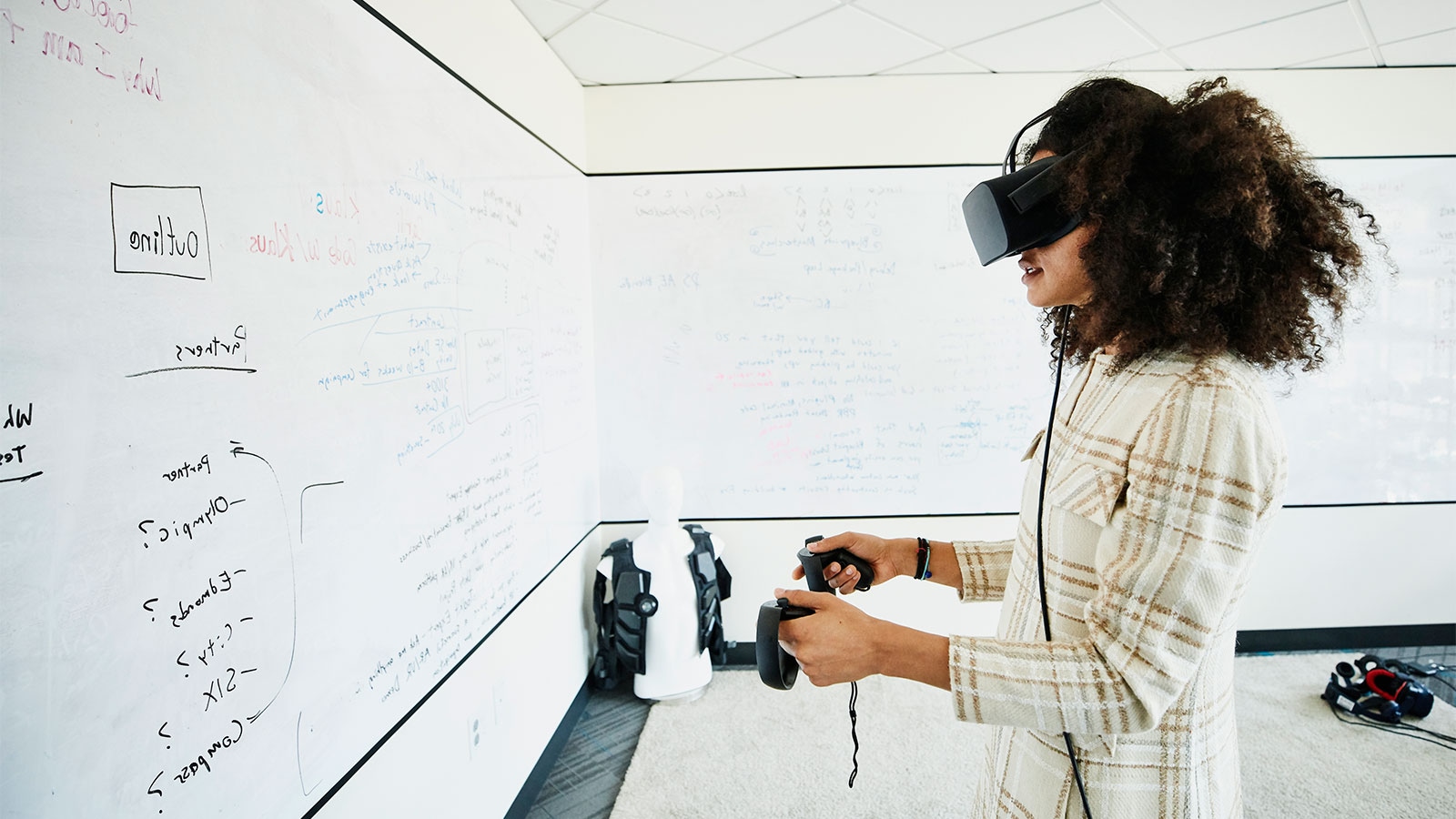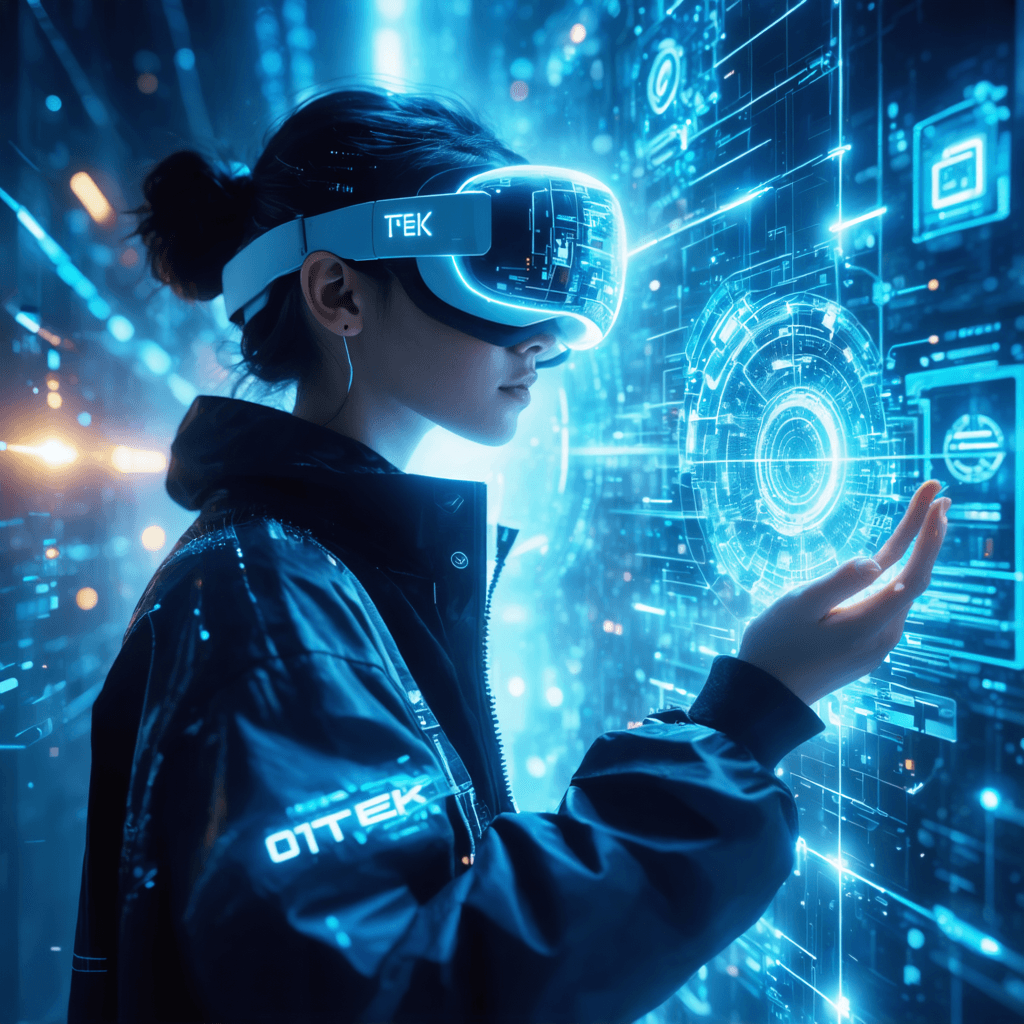Beyond Code: 10 Explosive Tech Careers Merging Reality and Virtual Worlds in 2024
The digital revolution continues to reshape our professional landscape, creating exciting new career paths that blend physical and virtual realms. As we navigate through 2024 and beyond, these emerging roles are not just reshaping industries – they're creating entirely new ones. Let's explore ten groundbreaking careers that are defining the future of technology and digital innovation.

1. Metaverse Experience Architect
As the metaverse continues to evolve, Metaverse Experience Architects are becoming increasingly vital. These professionals design and optimize virtual environments, creating immersive digital spaces that serve both business and entertainment purposes. They combine expertise in UX design, 3D modeling, and behavioral psychology to craft engaging virtual experiences that keep users coming back for more.
2. Digital Twin Specialist
Digital Twin Specialists create and maintain virtual replicas of physical objects, processes, or systems. These experts work at the intersection of IoT, data analytics, and simulation technology, helping organizations optimize operations, predict maintenance needs, and test scenarios in a risk-free virtual environment.
3. Extended Reality (XR) Learning Designer
The education and training landscape is being revolutionized by XR technologies. XR Learning Designers develop immersive training programs and educational experiences using virtual, augmented, and mixed reality. According to recent studies, VR-based learning can lead to 40% faster training completion rates compared to traditional methods.
4. Virtual Production Supervisor
As film and entertainment industries embrace virtual production technologies, these professionals oversee the integration of real-time 3D environments with live-action filming. They coordinate between traditional filmmaking crews and digital artists, ensuring seamless blending of physical and virtual elements.
5. Augmented Reality Operations Manager
With AR becoming increasingly prevalent in retail, manufacturing, and healthcare, AR Operations Managers ensure the smooth implementation and maintenance of AR systems. They oversee AR infrastructure, manage content updates, and optimize user experiences across different platforms and devices.

6. Haptic Interface Designer
As virtual experiences become more sophisticated, Haptic Interface Designers create touch-based feedback systems that make digital interactions feel more realistic. They work on everything from gaming controllers to medical training simulators, developing solutions that bridge the physical-digital divide.
7. Virtual Environment Ethics Officer
With the growing complexity of virtual worlds comes the need for ethical oversight. These professionals develop and enforce guidelines for virtual interactions, privacy protection, and digital rights management, ensuring safe and inclusive virtual spaces for all users.
8. Synthetic Media Specialist
The rise of AI-generated content has created a demand for experts who can create and manage synthetic media – from virtual influencers to AI-powered content creation. These specialists blend creativity with technical expertise to produce authentic and engaging digital experiences.
9. Neural Interface Developer
As brain-computer interfaces become more sophisticated, Neural Interface Developers work on creating seamless connections between human cognition and digital systems. They develop applications that can interpret neural signals and translate them into digital actions, opening new possibilities for human-computer interaction.
10. Virtual Asset Manager
With the growing importance of digital assets, including NFTs and virtual real estate, Virtual Asset Managers help individuals and organizations manage, protect, and maximize the value of their digital holdings. They need to understand both traditional asset management principles and emerging blockchain technologies.
Industry Growth and Opportunities
The AR and VR market is projected to reach $46.6 billion by 2025, indicating substantial growth opportunities in these fields. Companies are increasingly investing in immersive technologies, with many traditional roles evolving to incorporate virtual and augmented reality components.
Skills for Success
To thrive in these emerging careers, professionals should focus on developing:
- Strong programming and development skills
- 3D modeling and spatial design capabilities
- Understanding of human-computer interaction
- Knowledge of AI and machine learning
- Excellent problem-solving abilities
- Strong ethical judgment and decision-making skills
Preparing for the Future
As these technologies continue to evolve, the key to success lies in maintaining adaptability and committing to continuous learning. The convergence of physical and virtual worlds is creating unprecedented opportunities for innovation and career growth.
Ready to launch your career in these exciting new fields? Explore comprehensive training programs and resources at 01TEK. Our cutting-edge courses are designed to equip you with the skills needed for these emerging careers. Visit our website to learn more and take the first step toward your future in technology.
Sources: 1. PwC Virtual Reality Study 2. LinkedIn 2025 Job Playbook 3. Statista AR & VR Market Forecast 4. Meta Emerging Tech 5. Gartner Emerging Technologies
What is not started will never get finished
Johann Wolfgang von Goethe



